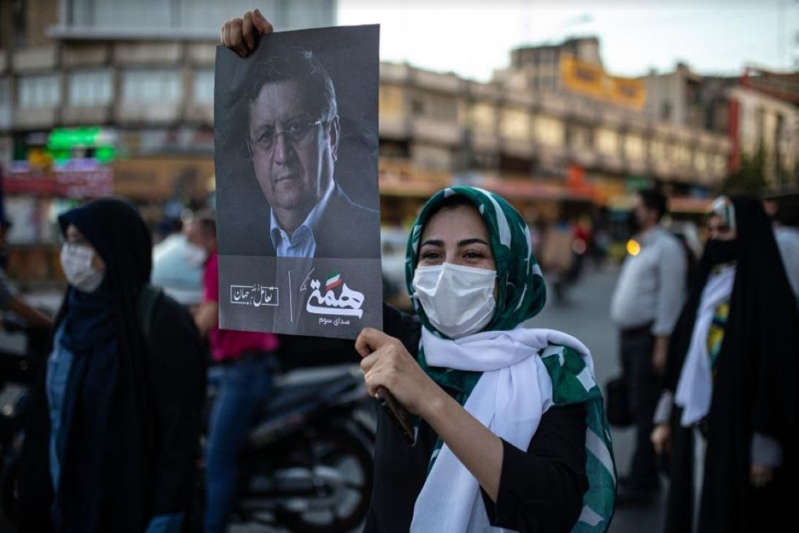June 18, Friday. Iran began voting on Friday in a presidential election tipped in the favor of a hard-line protege of Supreme Leader Ayatollah Ali Khamenei. State-linked opinion polling and analysts put hard-line judiciary chief Ebrahim Raisi as the dominant front-runner in a field of just four candidates. Former Central Bank chief, Abdolnasser Hemmati, is running as the race’s moderate candidate but has generated tepid support unlike outgoing President Hassan Rouhani. If elected, Raisi would be the first serving Iranian president sanctioned by the US government over his involvement in the mass execution of political prisoners in 1988, as well as his time as the head of Iran’s internationally criticized judiciary-one of the world’s top executioners. Negotiations continue in Vienna to rescue Tehran’s tattered nuclear deal with world powers as the election put hard-liners in control across the Iranian government. Tensions remain high with both the US and Israel, which is believed to have carried out a series of attacks targeting Iranian nuclear sites and assassinating the scientist who created its military atomic program decades earlier. Polls opened at 7 am local time for vote, which has seen widespread public apathy after a panel under Khamenei barred hundreds of candidates, including reformists and those aligned with Rouhani. Khamenei cast the ceremonial vote from Tehran, where he urged the public to take part. “This day belongs to the people,” he said.
There are more than 59 million eligible voters in Iran. However, the state-linked Iranian Student Polling Agency has estimated a turnout of just 42 per cent, which would be the lowest ever since the country’s 1979 Islamic Revolution. Fears about a low turnout have some warning Iran may be turning away from being an Islamic Republic. For his part, Khamenei warned of “foreign plots” seeking to depress turnout in a speech on Wednesday. “If we do not vote: Sanctions will be heavier, the US and Israel will be encouraged to attack Iran,” the leaflet warned. “Iran will be under shadow of a Syrian-style civil war and the ground will be ready for assassination of scientists and important figures.” State television also aired footage of a polling station set up by Soleimani’s graveside in the city of Kerman. The vote “is set to be the least competitive election in the Islamic Republic’s history,” wrote Torbjorn Soltvedt, an analyst at the risk consultancy firm Verisk Maplecroft. “The election is heavily stacked in favor of candidates from the theocratic and hard-line end of Iran’s political spectrum; there will be little need for the more overt forms of election fraud that characterized the turbulent re-election of Mahmoud Ahmadinejad in 2009.” The decision to limit participation comes as whoever wins likely will serve two four-year terms as nearly every Iranian president has since the revolution. That means they may be at the helm at what could be one of the most-crucial moments for the country in decades – the death of the 82-year-old Khamenei. Already, speculation has mounted that Raisi may be a contender for the position, as well as Khamenei’s son, Mojtaba, who is believed to have close ties to Iran’s paramilitary Revolutionary Guard.


Comment here